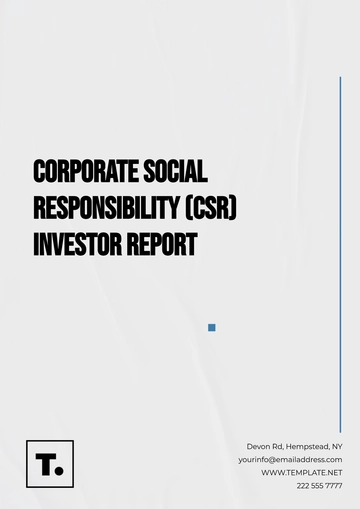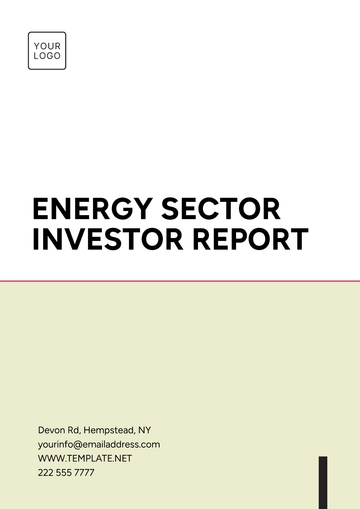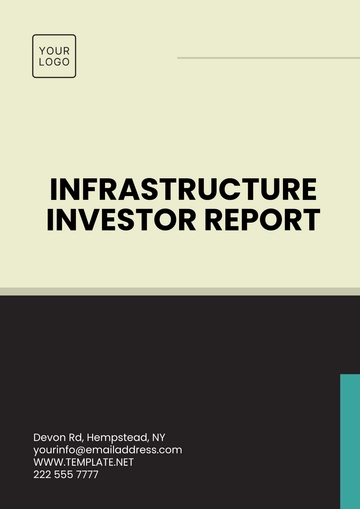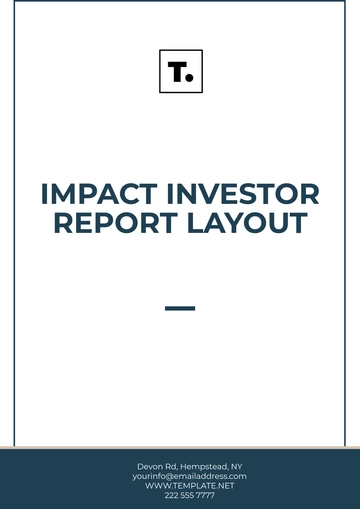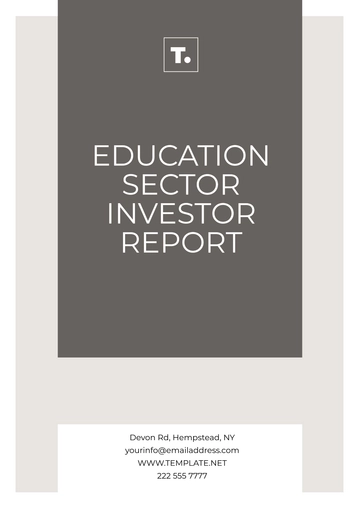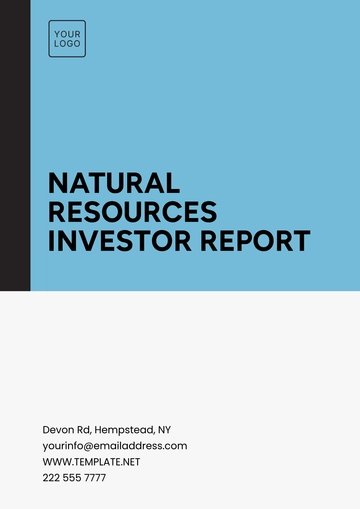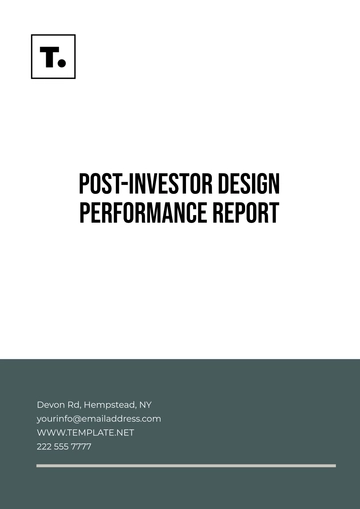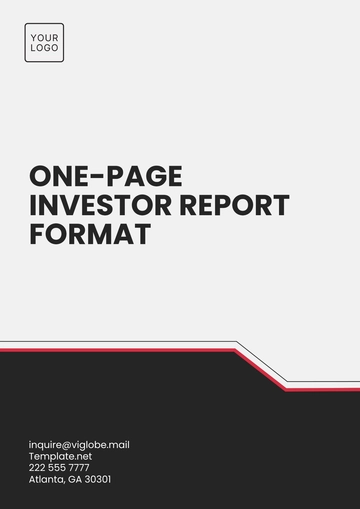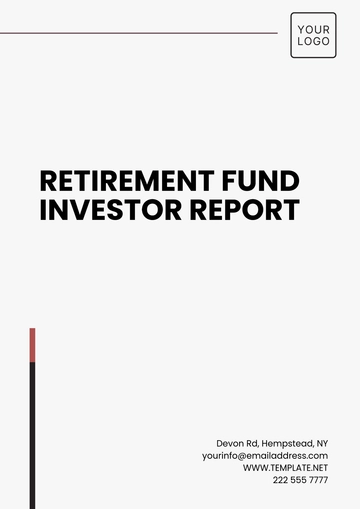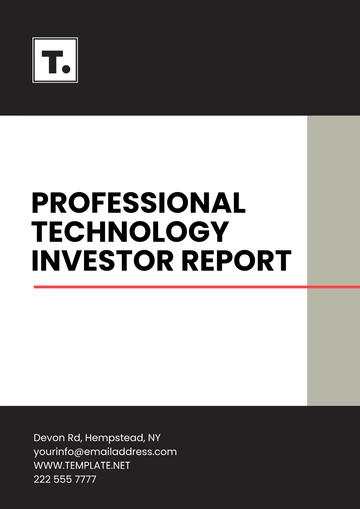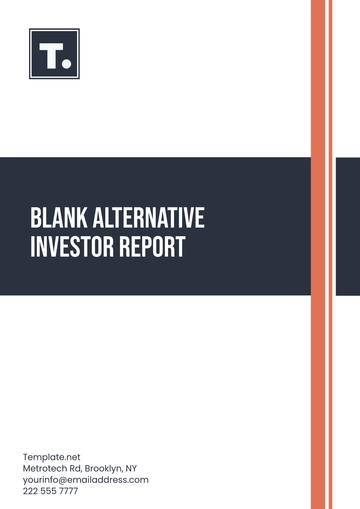Free Infrastructure Investor Report
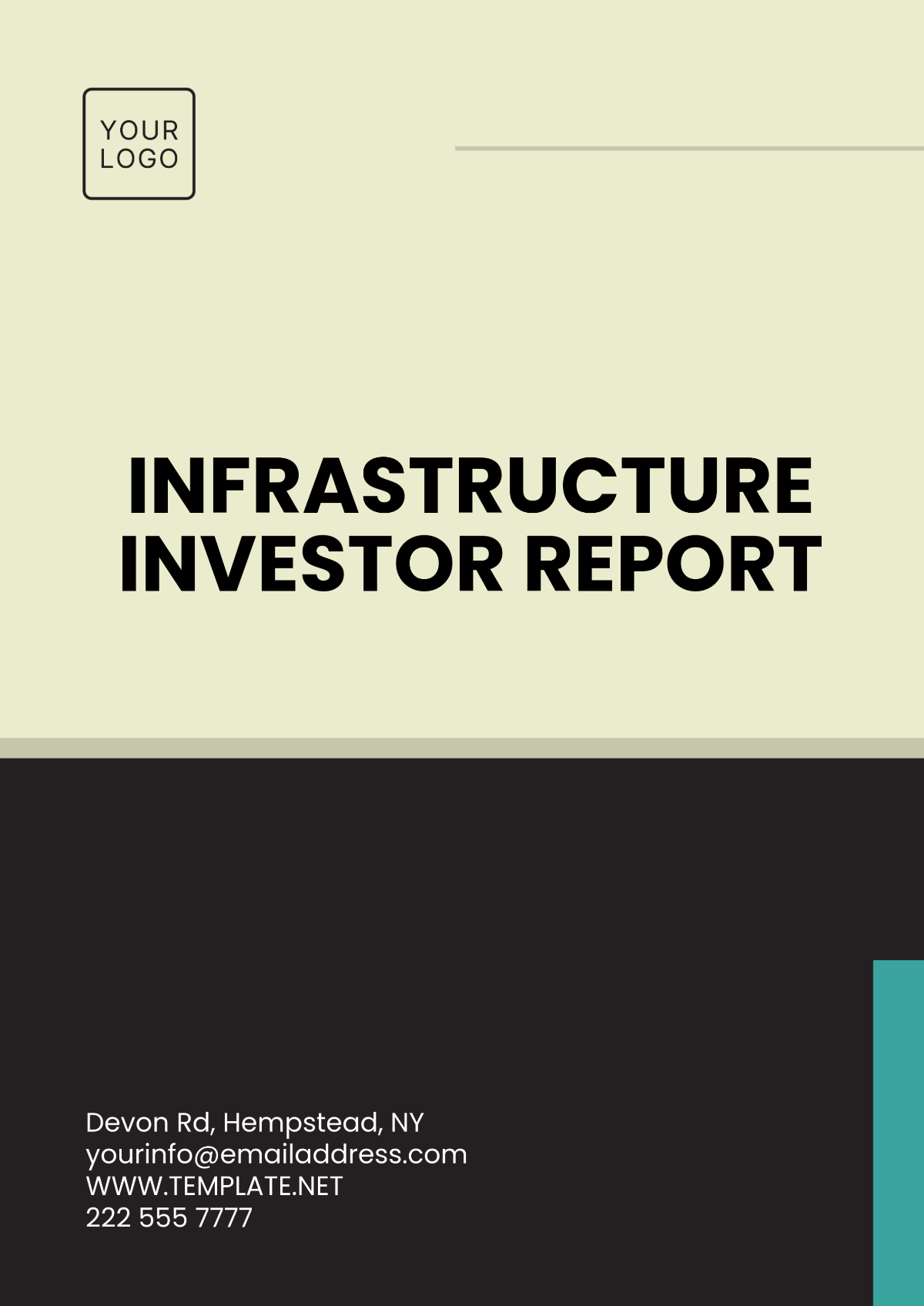
Prepared By: [Your Name]
Date:[Date]
Executive Summary
The global infrastructure investment landscape is undergoing significant transformations due to economic shifts, technological advancements, environmental challenges, and evolving policy landscapes. This report provides a comprehensive analysis of current trends, opportunities, and risks in infrastructure investments.
Introduction
The infrastructure sector is a critical foundation of modern economies, encompassing transportation, energy, water, communication, and social infrastructure. Investors in this sector are attracted by the potential for stable, long-term returns. However, they must also navigate an increasingly complex environment marked by regulatory changes and sustainability considerations.
Current Trends in Infrastructure Investment
Technological Advancements
Technological innovation is revolutionizing infrastructure design and operations. Smart grids, digital railways, and automated ports are some of the advancements improving efficiency and reducing costs.
Focus on Sustainability
Environmental sustainability is now a key consideration for investors. Projects with a strong focus on reducing carbon footprints and incorporating renewable energy sources are gaining prominence.
Emerging Market Opportunities
Emerging markets present new opportunities for investment, driven by urbanization, population growth, and economic expansion, especially in Asia and Africa.
Investment Opportunities
The following table outlines various investment opportunities across different infrastructure sectors.
Sector | Opportunities |
|---|---|
Transportation | Development of high-speed trains, expansion of urban transit systems, enhancement of airport infrastructures. |
Energy | Investments in solar and wind energy, development of energy storage solutions, upgrading power distribution networks. |
Water | Development of desalination plants, improvement of water recycling facilities. |
Communications | Expansion of broadband networks, deployment of 5G technology. |
Social Infrastructure | Construction and enhancement of hospitals, schools, and affordable housing. |
Risks and Challenges
Regulatory Risks
Infrastructure projects are often subject to extensive regulation, with potential changes impacting project timelines and profitability.
Environmental and Climate Risks
Climate change presents significant risks to infrastructure resilience and longevity, affecting sectors such as coastal transport and water supply.
Political and Economic Risks
Geopolitical tensions and economic instability can influence investment returns, particularly in emerging markets.
Key Considerations for Investors
Conduct comprehensive due diligence, considering both macroeconomic and microeconomic factors.
Assess the impact of technology on future infrastructure needs and returns.
Prioritize projects aligned with global sustainability goals.
Diversify portfolios to mitigate individual project risks.
Stay informed about regulatory changes in key markets.
Conclusion
As infrastructure needs evolve with global trends, investors have a unique opportunity to harness growth and innovation within the sector. By considering a comprehensive strategy that aligns with technological advancements and sustainability goals, investors can achieve robust portfolios and contribute to long-term societal benefits.
- 100% Customizable, free editor
- Access 1 Million+ Templates, photo’s & graphics
- Download or share as a template
- Click and replace photos, graphics, text, backgrounds
- Resize, crop, AI write & more
- Access advanced editor
The Infrastructure Investor Report Template, offered by Template.net, is a professional and customizable solution for creating detailed investment reports. This template is fully editable in our AI Editor Tool, allowing you to tailor it to your specific needs. Easily downloadable and printable, it offers a streamlined approach to documenting infrastructure investments. Perfect for businesses and professionals looking to present data effectively, this template ensures efficiency and clarity in your reporting process.
You may also like
- Sales Report
- Daily Report
- Project Report
- Business Report
- Weekly Report
- Incident Report
- Annual Report
- Report Layout
- Report Design
- Progress Report
- Marketing Report
- Company Report
- Monthly Report
- Audit Report
- Status Report
- School Report
- Reports Hr
- Management Report
- Project Status Report
- Handover Report
- Health And Safety Report
- Restaurant Report
- Construction Report
- Research Report
- Evaluation Report
- Investigation Report
- Employee Report
- Advertising Report
- Weekly Status Report
- Project Management Report
- Finance Report
- Service Report
- Technical Report
- Meeting Report
- Quarterly Report
- Inspection Report
- Medical Report
- Test Report
- Summary Report
- Inventory Report
- Valuation Report
- Operations Report
- Payroll Report
- Training Report
- Job Report
- Case Report
- Performance Report
- Board Report
- Internal Audit Report
- Student Report
- Monthly Management Report
- Small Business Report
- Accident Report
- Call Center Report
- Activity Report
- IT and Software Report
- Internship Report
- Visit Report
- Product Report
- Book Report
- Property Report
- Recruitment Report
- University Report
- Event Report
- SEO Report
- Conference Report
- Narrative Report
- Nursing Home Report
- Preschool Report
- Call Report
- Customer Report
- Employee Incident Report
- Accomplishment Report
- Social Media Report
- Work From Home Report
- Security Report
- Damage Report
- Quality Report
- Internal Report
- Nurse Report
- Real Estate Report
- Hotel Report
- Equipment Report
- Credit Report
- Field Report
- Non Profit Report
- Maintenance Report
- News Report
- Survey Report
- Executive Report
- Law Firm Report
- Advertising Agency Report
- Interior Design Report
- Travel Agency Report
- Stock Report
- Salon Report
- Bug Report
- Workplace Report
- Action Report
- Investor Report
- Cleaning Services Report
- Consulting Report
- Freelancer Report
- Site Visit Report
- Trip Report
- Classroom Observation Report
- Vehicle Report
- Final Report
- Software Report






